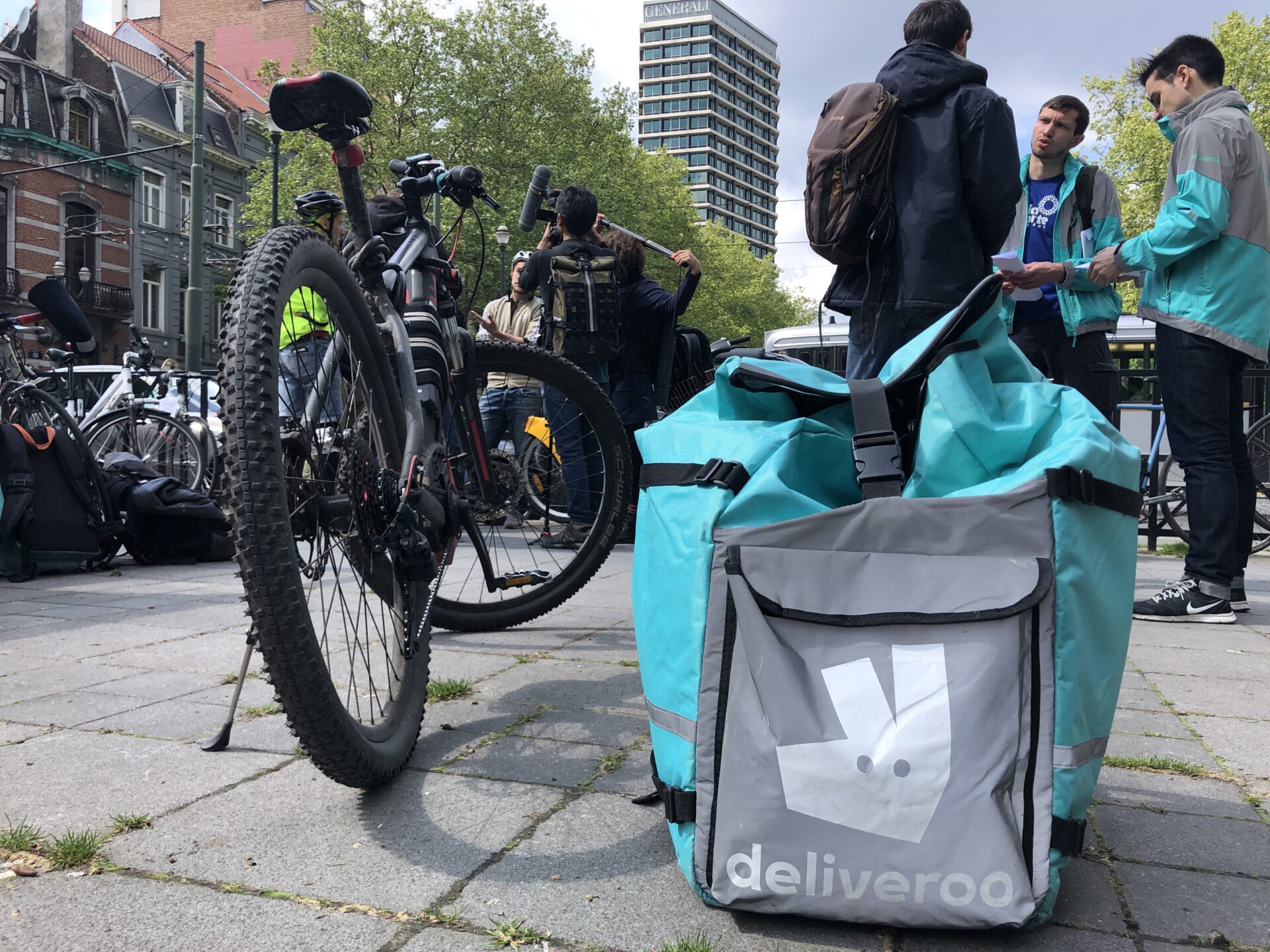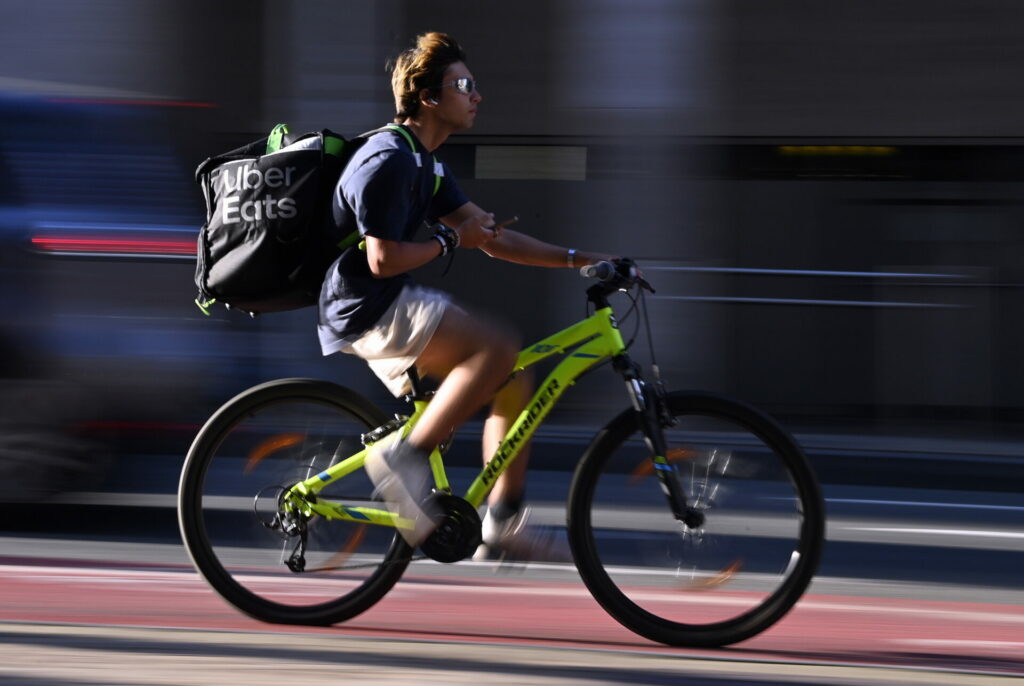The rights of platform workers will soon be strengthened across the European Union after it was agreed that many of them would be reclassified as official employees (rather than self-employed) to help strengthen their social protection.
While the regulations on platforms such as Uber, JustEat and Deliveroo are currently not uniform across the 27 Member States, new legislation intends to set identical rules at the EU level which will determine whether all platform workers must be reclassified as employees.
"Until the last moment, the Uber and Deliveroo lobbies worked behind the scenes to sabotage this directive. I would have liked this agreement to be more ambitious, but we held on; Uber does not make the law in Europe," said French MEP Leïla Chaibi (The Left) told The Brussels Times.
Chaibi is the Vice-President of the Committee on Employment and Social Affairs (EPML) in the Parliament and has been a prominent advocate for improving the working conditions of platform workers in Europe.
Currently, the majority of the EU’s 28 million platform workers, including taxi drivers, domestic workers and food delivery drivers, are formally self-employed. However, an estimated 5.5 million of them have to abide by many of the same rules and restrictions as employed workers.
'A de facto employment relationship'
The new law will establish five criteria to harmonise the status of these platform workers. Under the agreement, workers will be "legally presumed to be employees" of a digital platform (as opposed to self-employed) if their relationship with the platform fulfils at least two out of five indicators.
These indicators are: upper limits on the amount of money workers can receive, supervision of their performance (including by electronic means), control over the distribution or allocation of tasks, control over working conditions and restrictions on choosing working hours, and restrictions on their freedom to organise their work and rules on their appearance or conduct.

Credit: Belga / Nils Quintelier
If two of these indicators apply, the platform will be presumed an employer, and therefore have to submit to labour law obligations (minimum salary, working hours, sick pay, safety standards,...) imposed by the legislation of the country concerned.
According to the Commission, around 5.5 million workers are currently classified as self-employed while they are "in a de facto employment relationship" with digital platforms and should therefore be entitled to the same labour and social rights granted to employees under EU law.
In recent years, the platform economy has grown exponentially, with revenues increasing from an estimated €3 billion in 2016 to around €14 billion in 2020. The number of platform workers is expected to reach 43 million by 2025.
"Today’s agreement represents a huge step forward for gig workers in the EU. Once confirmed by the Council and the Parliament, it will provide better overall protection for platform workers," said Yolanda Díaz, Spanish Vice-President and Minister for Work and Social Economy. "In particular it will help ensure that those workers who have wrongly been classified as self-employed have easier access to their rights as employees under EU law."
Now, the text will still have to be formally approved by MEPs in a plenary session, as well as by the EU Council which represents the Member States before it can be implemented.

